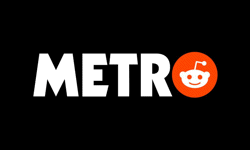The three big examples at the moment are News Corp’s attempt to achieve total ownership of Sky TV, the European Commission’s announced enquiry into Google and, of course, Wikileaks’ apparent ability to arrest the attention of the world’s media and audience.
Competition and media ownership legislation is as varied as the 200 countries in the world.
But let’s focus on the issues that are on the table.
News Corp
News Corp have stated a wish to acquire the 60% of satellite operator, Sky, the UK’s biggest commercial TV broadcaster, which they currently do not own outright. In so doing, they would control 70% of TV subscriptions, along with their 39% share of the UK national newspaper circulation. Rupert Murdoch, who owns 40% of News Corp, which in turn owns 39% of Sky, would end up controlling both, with his son as chairman of Sky, and himself chairing News Corp. Ofcom have investigated the implications, and asked the Competition Commission to review the case. The European Commission, who demonstrate little coherent rationale when it comes to media regulation, have given their go ahead to the deal. Opponents argue that one company controlling such a high proportion of the UK media scene would restrict plurality and put too much influence into what they see as Mr Murdoch’s political agenda.
Proponents rightly point to Murdoch’s extraordinary, unique commercial acumen and vision, and the fact that Sky has revolutionised both the TV subscription model, and the programming output. The question is not about Murdoch, whose ability is extraordinary, but about the regulators’ ability to navigate the market issues, which is not.
As I’ve demonstrated before, media performance is politically counter-intuitive; media in opposition tend to outperform those in support.
Mr Murdoch is not so much political as opportunist. Of course, Fox News is regularly noted for its right wing agenda, but this fits the US political psyche. People tend to forget that Mr Murdoch befriended left wing Labour, and Tony Blair, when he knew Labour would win the 1997 election, only to drop them when he anticipated they would lose. Seems more like commercial astuteness than agenda setting.
The European Commission has decided to open an anti-trust investigation into allegations that Google has abused its dominant position in online search. This is in response to complaints about unfavourable treatment in Google's unpaid and sponsored search results coupled with an alleged preferential placement of Google's own services. Search now accounts for over 40% of all online advertising, and Google probably accounts for 80% of that in Europe.
The difference between these two cases is very instructive, and together they point to the dilemma of media regulation in the future.
It is important to differentiate between media regulation, commercial competition, and the increasing issue of privacy at both a national and individual level. All of these are increasingly unregulatable territory.
Historically, media regulation was down to encouraging plurality of opinion, through structural control. But what does one do in an operating environment that is uncontrollable? In the case of News Corp and Sky, there are measurable issues of influence, and commercial dominance. In the case of Google, there is an arguable case regarding commercial dominance, having 32% of the online advertising, and in turn 4% of all advertising. There is no argument, yet, of their seeking to influence social debate.
Personally, I find the unwillingness of governments to respond to Microsoft’s 80% plus domination of the personal computer market, and determination to profit from inertia selling of new products that nobody wants, as somewhat sinister. (Have you ever tried buying a Dell laptop without Windows?) Someone in Seattle clearly has photographs of lawmakers of monumental embarrassment, and we can only hope they get sent to Wikileaks!
And speaking about privacy?
Wikileaks
Wikileaks may have been a triumph for freedom of information, but is it good for society to have every diplomats’ and politicians’ private thoughts paraded in public? Certainly Julian Assange’s decision to cut the New York Times out of its distribution list, because it published a critical article about Wikileaks’ methods, raises questions about his own motives.
I object strongly to having my front door picture on Google’s Street View (particularly since my wife had just put the trash out for collection), and for aerial photographs of my house and garden. Google’s declared vision of being able to photograph from a mobile a building to know who lives or works there is surely evil, which Google allegedly don’t do. Hmmmmmmm.
And News Corp are hardly pillars of privacy respect, since they are recoiling from further evidence of the illegal phone-tapping.
Speaking with regulators, it is clear that their work is difficult. Nobody wants excessive regulation or control. But as we move from the analogue, structured environment, to the anarchic digital world, there must be a redefinition of regulatory control, because the current system will not survive for the next five years; neither in the mature markets of Western Europe, and North America, nor in the more controlled emerging markets in Asia, or free rolling markets of South America.
While citizen contributions, blogs, comments, and so on are very welcome additions to the new media environment, they cannot replace good quality journalism and analysis. Thousands of citizens provide opinions and stories, some high quality, most hysterical and inaccurate, and many agenda-propelled. The role of the journalist is now more important than ever before. This triangulation of market dominance, cross-media and privacy will come to dominate the debate about the future of media regulation.










